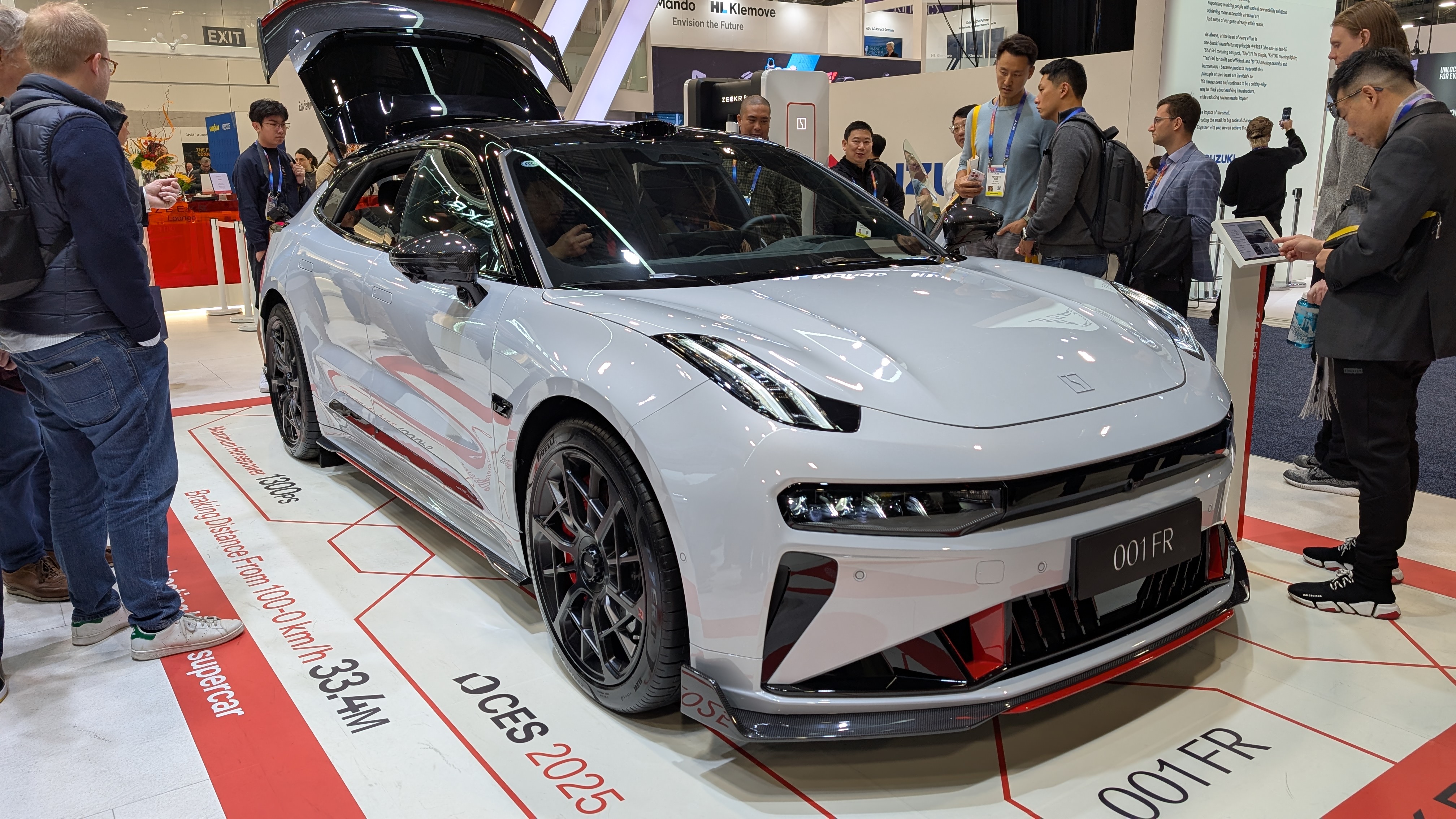
Over the past decade, CES has developed into a bit of a car and EV tech (side)show and this year was no exception. That being said, a lot of the car and EV tech displayed at the event is often very “pie-in-the-sky” future tech. So in this article, I wanted to focus on some of the more interesting (and down-to-earth) EV tech I saw at CES 2025. Let’s get started.
1) BMW Panoramic iDrive for Neue Klasse EV
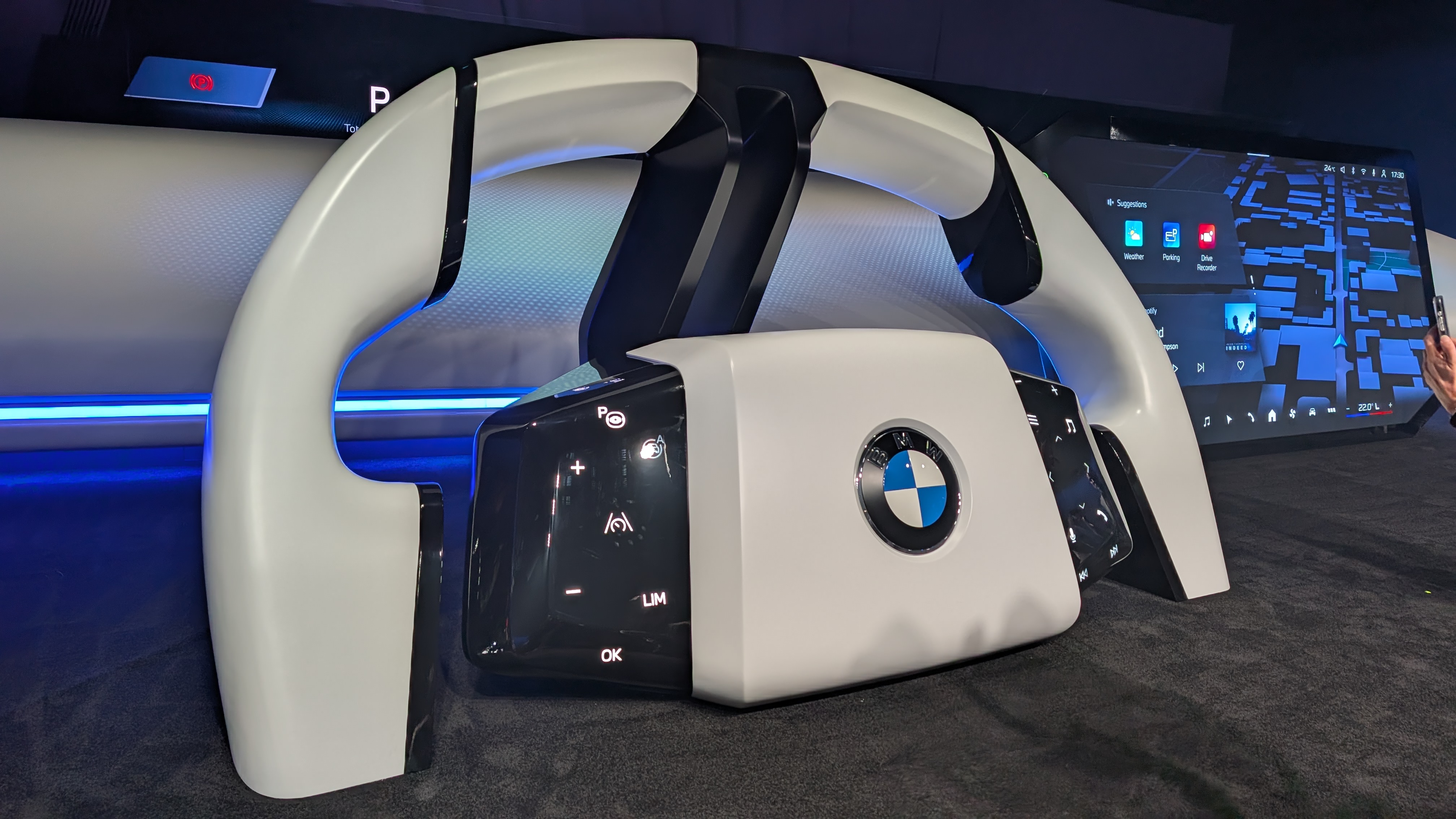
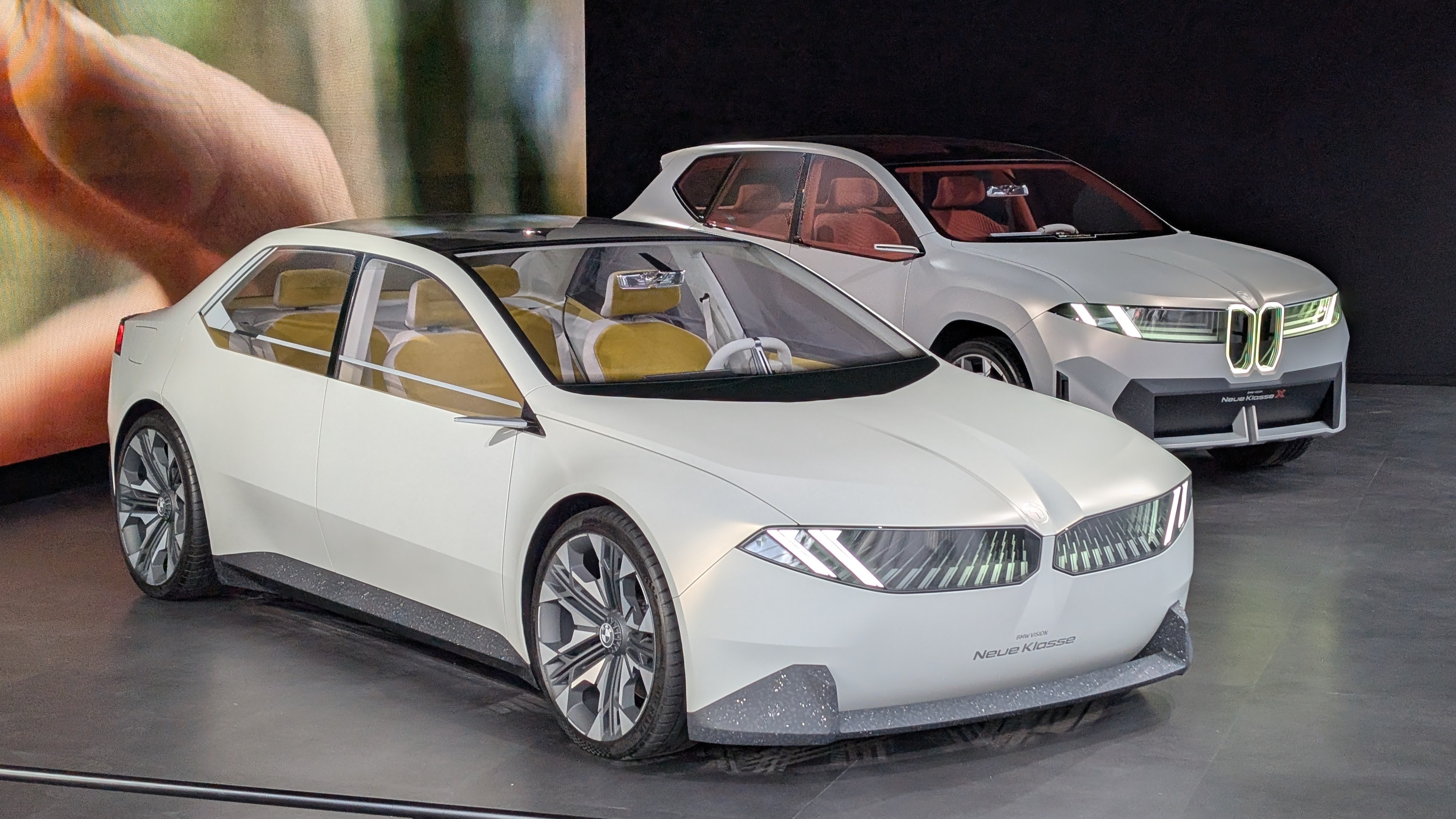
BMW’s Neue Klasse EVs were on display at the company’s booth, and while these were prototypes, production models are expected to launch later this year. Neue Klasse is a major reboot for BMW, like it was back in the 60’s, when it helped save the company from insolvency and define its modern brand identity. At CES 2025, BMW demoed the company’s Panoramic iDrive, which will define the software experience for Neue Klasse EVs.
Panoramic iDrive consists of a pillar-to-pillar display that projects information onto a narrow black band printed along the bottom of the entire windshield. This information includes driving essentials (like speed, gear, range, etc…) on the driver’s side, plus six customizable widgets in the remaining space. Optionally, this Panoramic Vision screen extends into the transparent area of the windshield on the driver’s side, serving as a 3D HUD (heads-up display).
A 17.9-inch center touchscreen is the main way you interact with Panoramic iDrive. This display isn’t rectangular but slanted towards the driver making it easier to reach from the multi-button steering wheel. It provides the usual navigation and infotainment functionality and lets you assign widgets to the Panoramic Vision screen at the bottom of the windshield. Voice commands are another prominent input modality for Panoramic iDrive.
Just don’t expect to find the iconic iDrive rotary controller on the center console. With Panoramic iDrive, the “puck” is gone for good.
2) Zeekr RT Waymo electric robotaxi
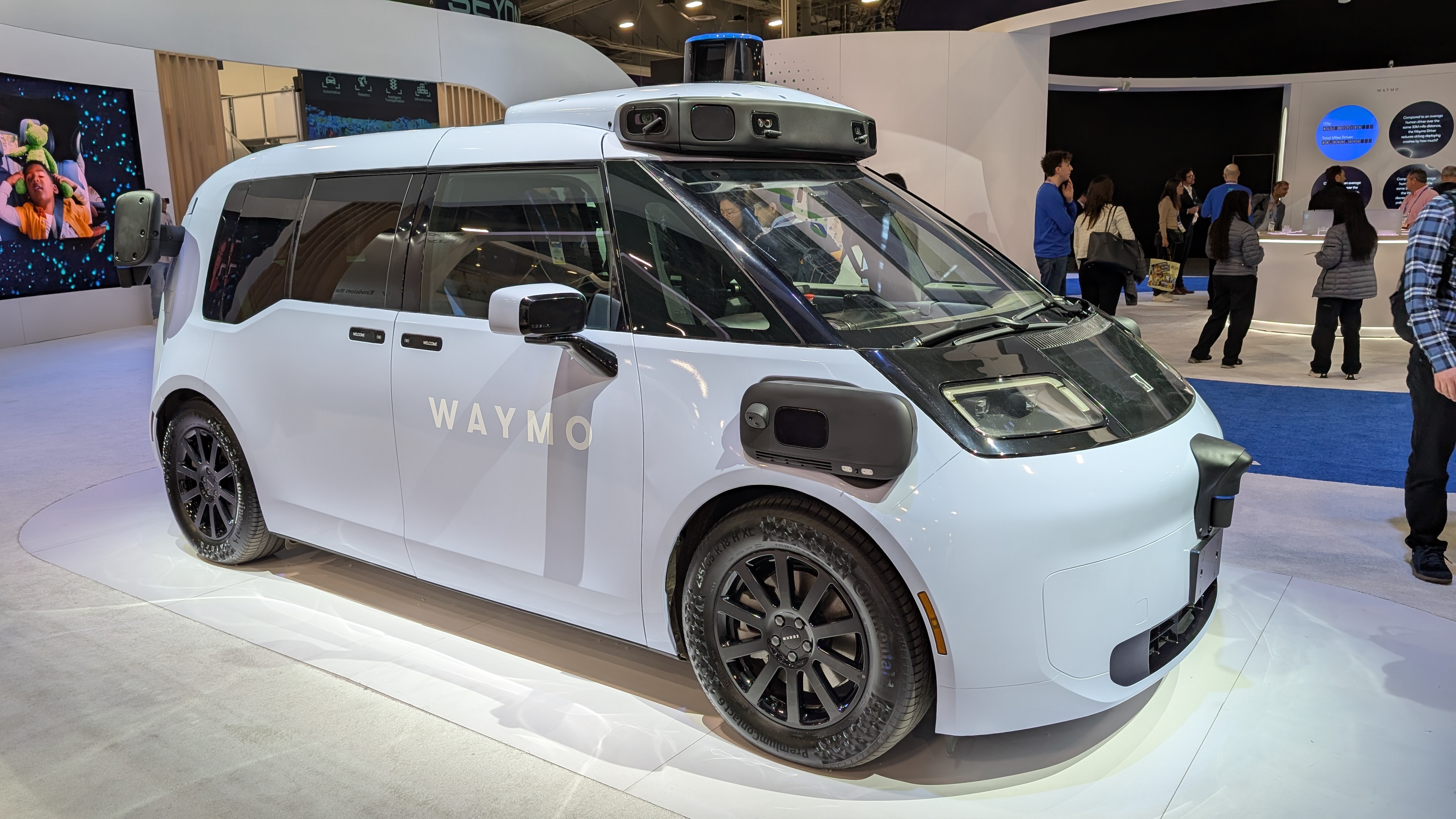
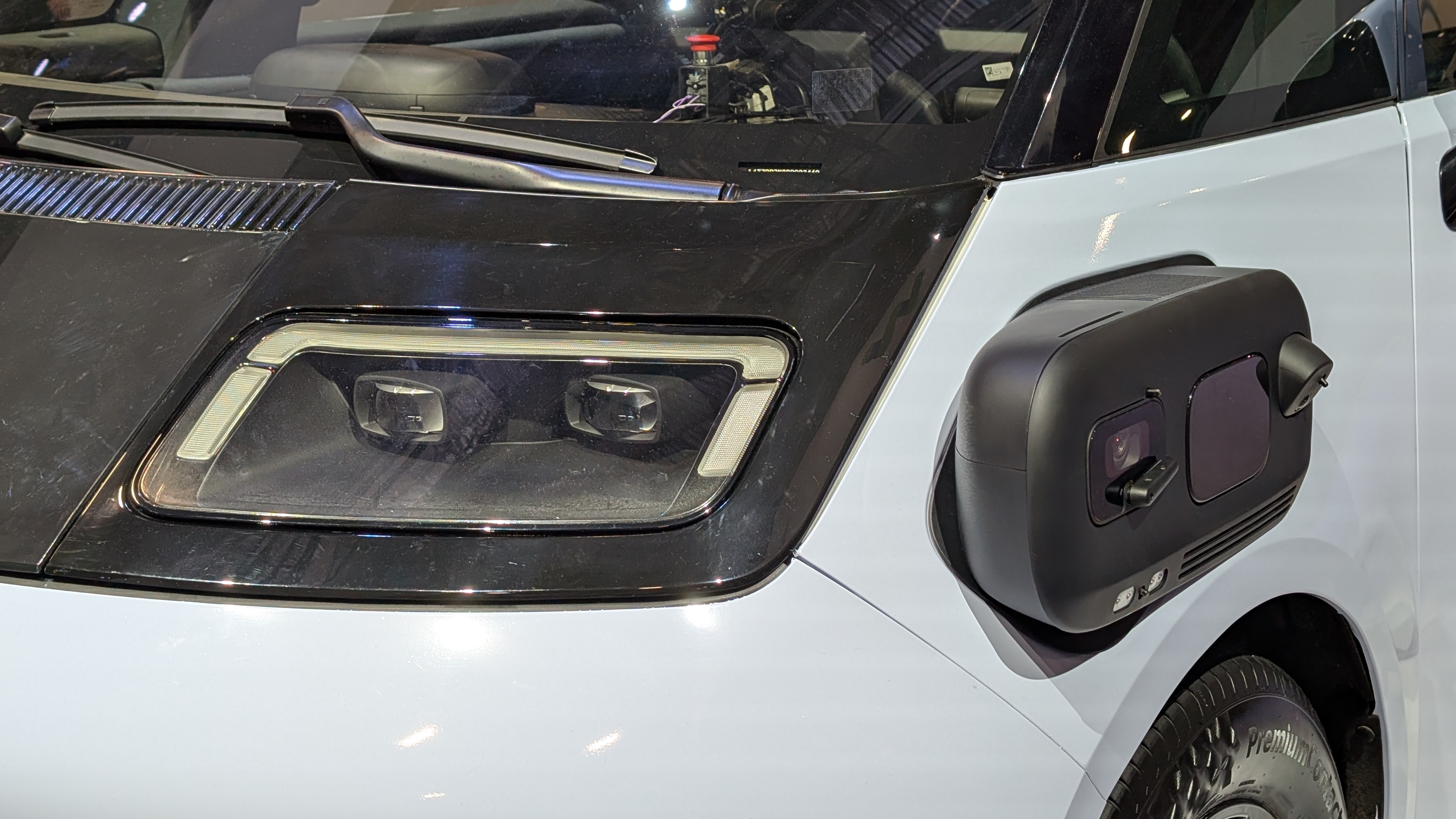
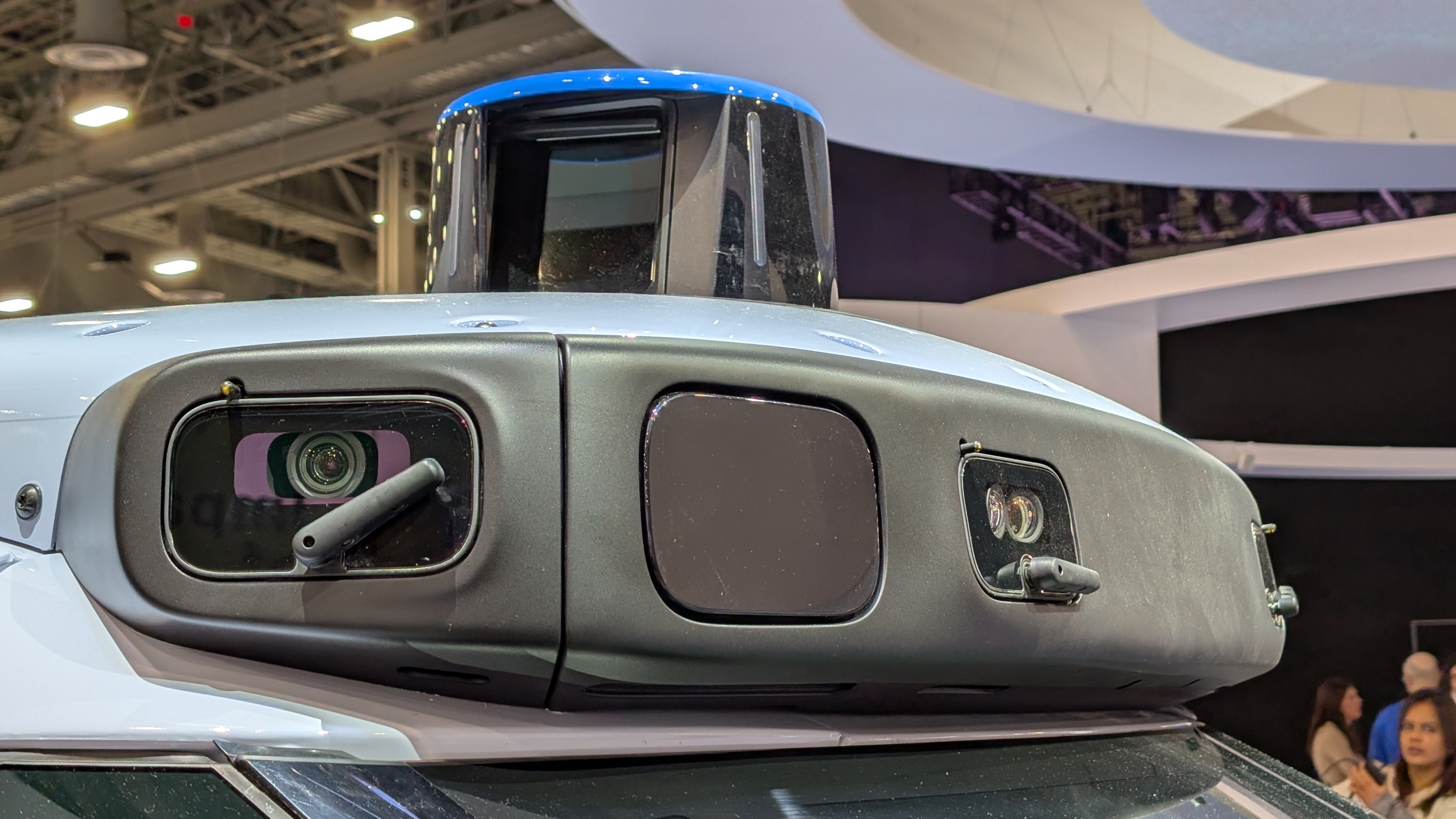
If you haven’t heard about Zeekr yet, you’re in for a treat. Zeekr is a Chinese EV brand that’s been making waves ever since its debut three years ago thanks to a great lineup of cars. It’s owned by Geely, the Chinese auto manufacturer that’s also parent to Volvo, Polestar, and Lotus. Why does this matter? First, Zeekr brings to the table performance and luxury EVs like the 1,282hp quad-motor 001FR plus Mix and 009 minivans it showed at CES 2025.
Second, Zeekr sells its EVs outside of China, in Western countries like the Netherlands, Sweden, and Norway. Third, Waymo has partnered with Zeekr here in the US to complement its fleet of Jaguar i-PACE autonomous EVs with the Zeekr RT electric robotaxi. This electric AV (autonomous vehicle) is pretty much a lounge on wheels. It’s powered by Nvidia’s new DRIVE Thor centralized car computer and features tiny wipers to keep its cameras clean.
The Zeekr RT is derived from the aforementioned Mix minivan, shares its pillar-less design, and likely packs the same 76kWh battery and 415hp rear motor. What you won’t find inside the Zeekr RT – at least in its final form – is a steering wheel or pedals. That’s right, this is Waymo’s first “proper” electric robotaxi. As a San Francisco resident and a regular Waymo rider, I can’t wait to experience the Zeekr RT, so stay tuned for my first impressions.
3) Aptera production ready solar EV
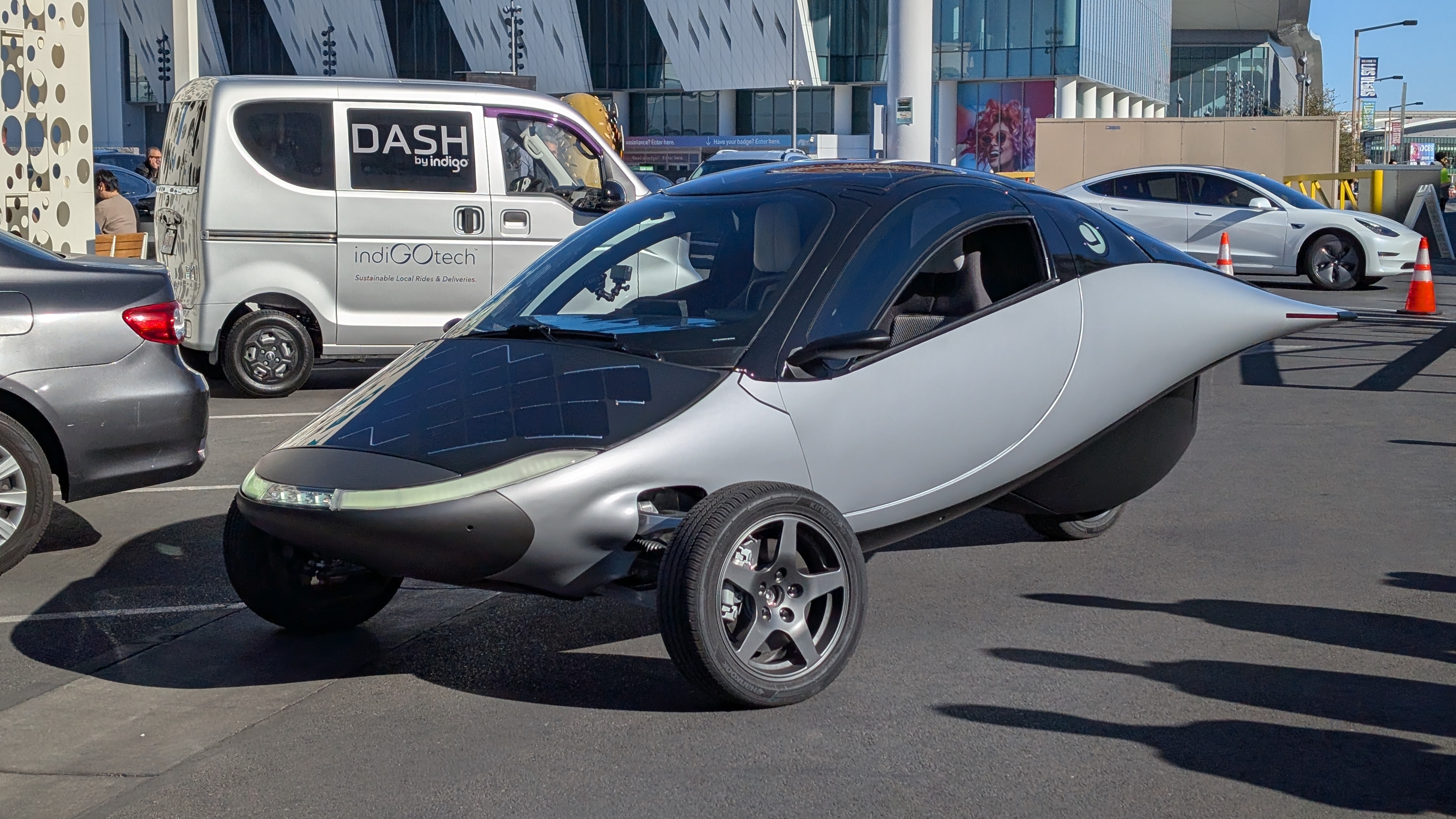
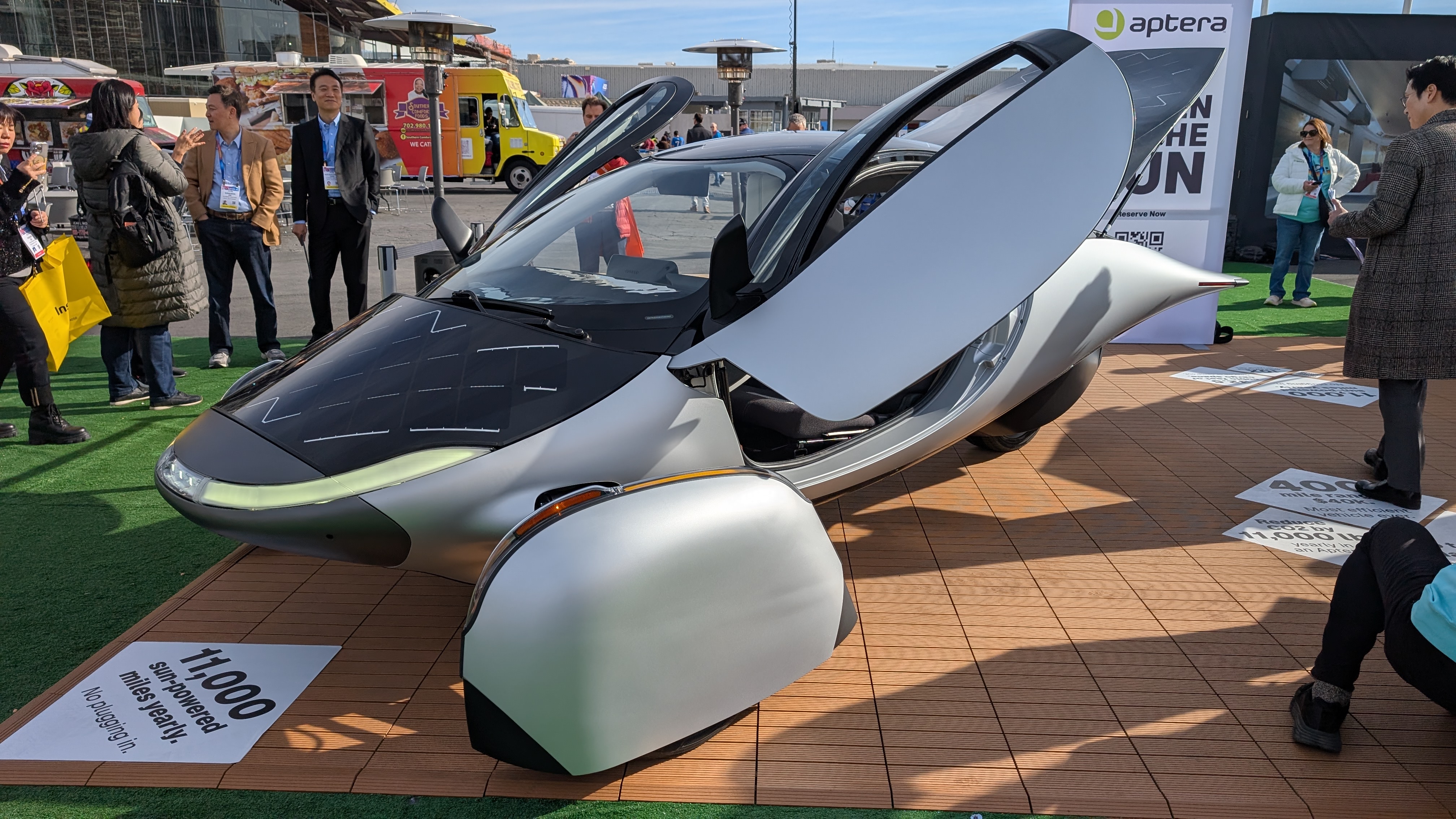
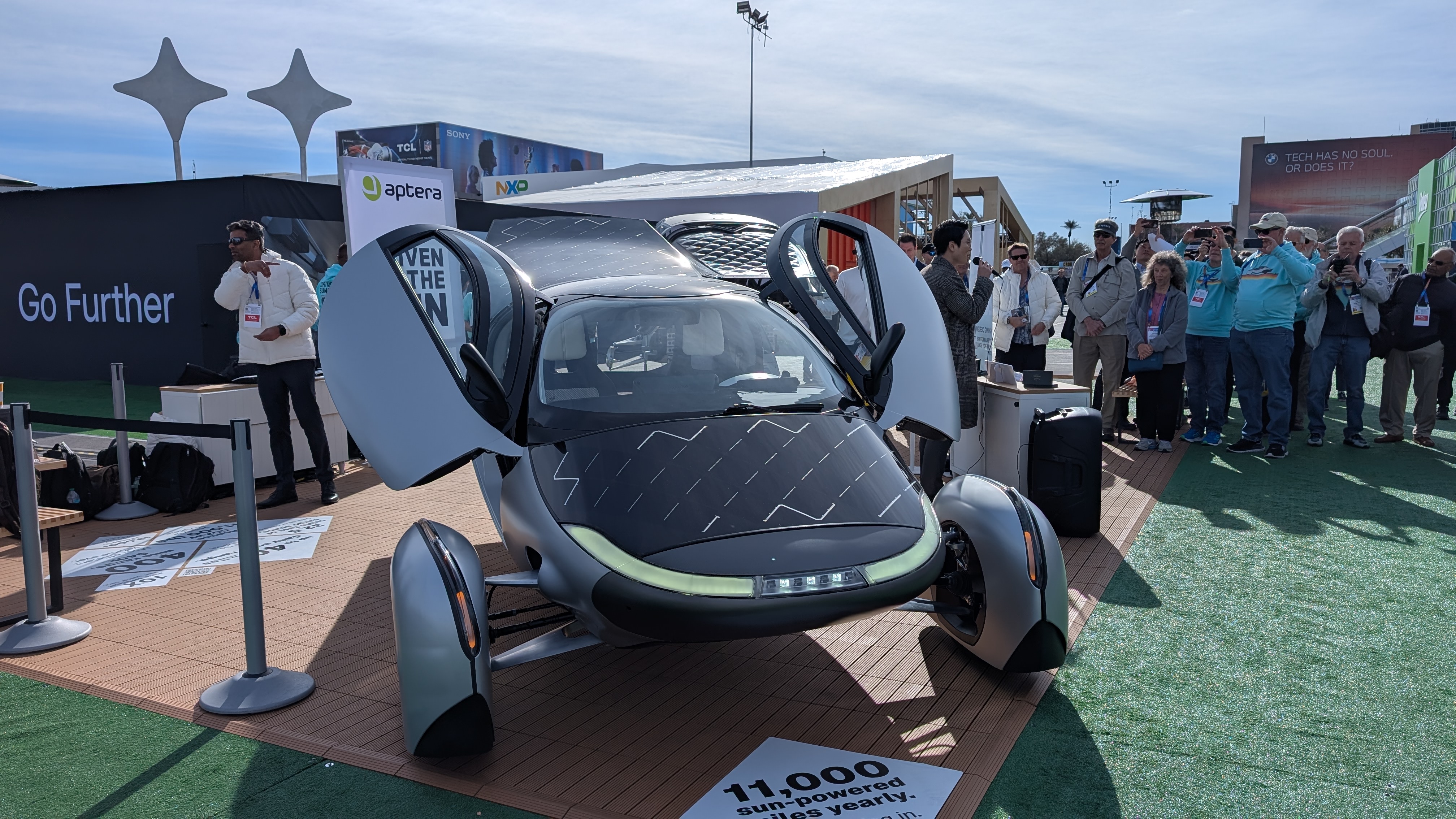
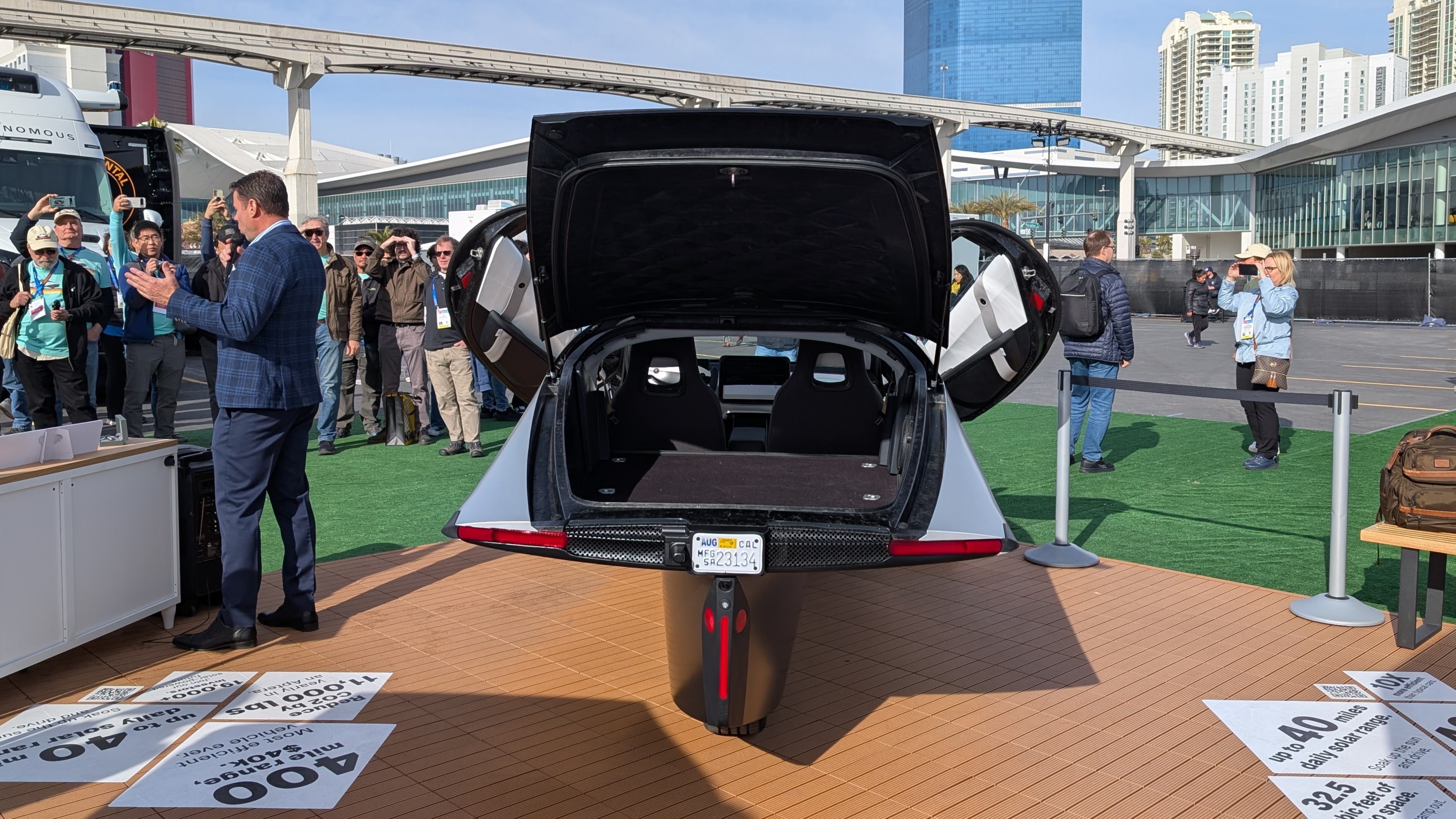
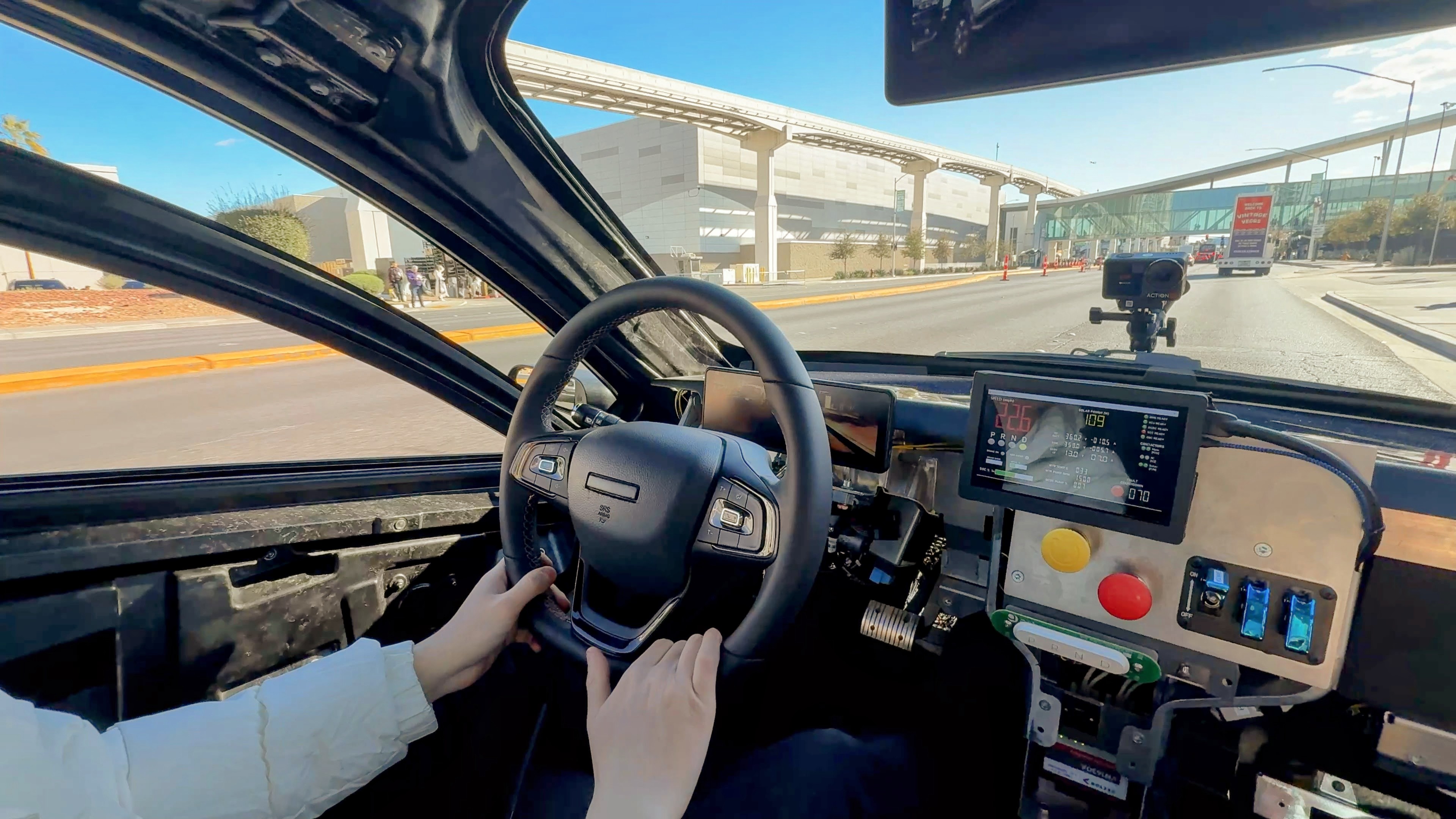
The history of Aptera is long and tortuous, but at CES 2025, the company finally unveiled its production-ready solar EV – alongside a partnership with LG Energy for cylindrical cells. Now, keep in mind that the Aptera is not a regular car, but a three-wheeled, two-seater vehicle with a small 3.5 cu.ft. trunk. But it’s also covered in solar panels that can provide up to 40 miles of range per day, meaning a day’s worth of running errands for most people.
With its carbon fiber sheet molding compound (CF-SMC) and aluminum construction, the Aptera weighs only about 2,200lbs (including the 44kWh battery pack). This, combined with a Cd (drag coefficient) of just 0.13, gives the Aptera a range of up to 400 miles, making it incredibly efficient. Besides charging from the solar panels, it also features a NACS port that supports DC fast charging in less than an hour, plus Level 2 AC charging.
I had the chance to both sit in a “roller” – a non-operational display vehicle – with a mostly full interior, and to ride as a passenger in a functional test car, with a bare-bones interior (seats, steering wheel, basic controls). The exterior looked almost complete on both vehicles, but the interior of the roller was really just for show, with poor materials and build quality – not something you’d expect from a “production ready” $40,000+ EV.
Still, my ride in the Aptera was impressive enough – even as a passenger – that I wanted to include it in this roundup. This three-wheeled EV felt quick, sporty, and fun to drive.
4) Cadillac OPTIQ EV with Dolby Atmos
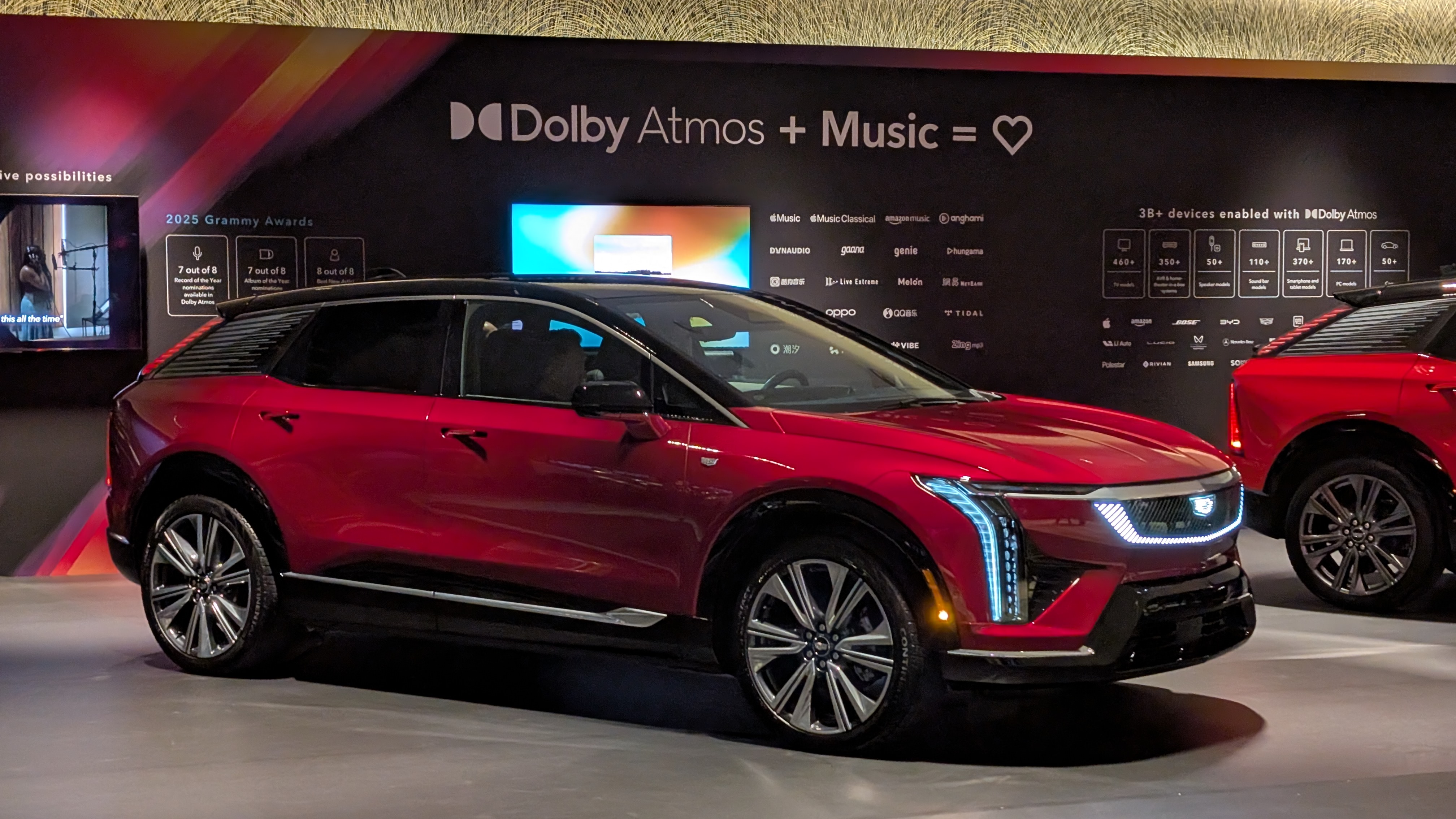
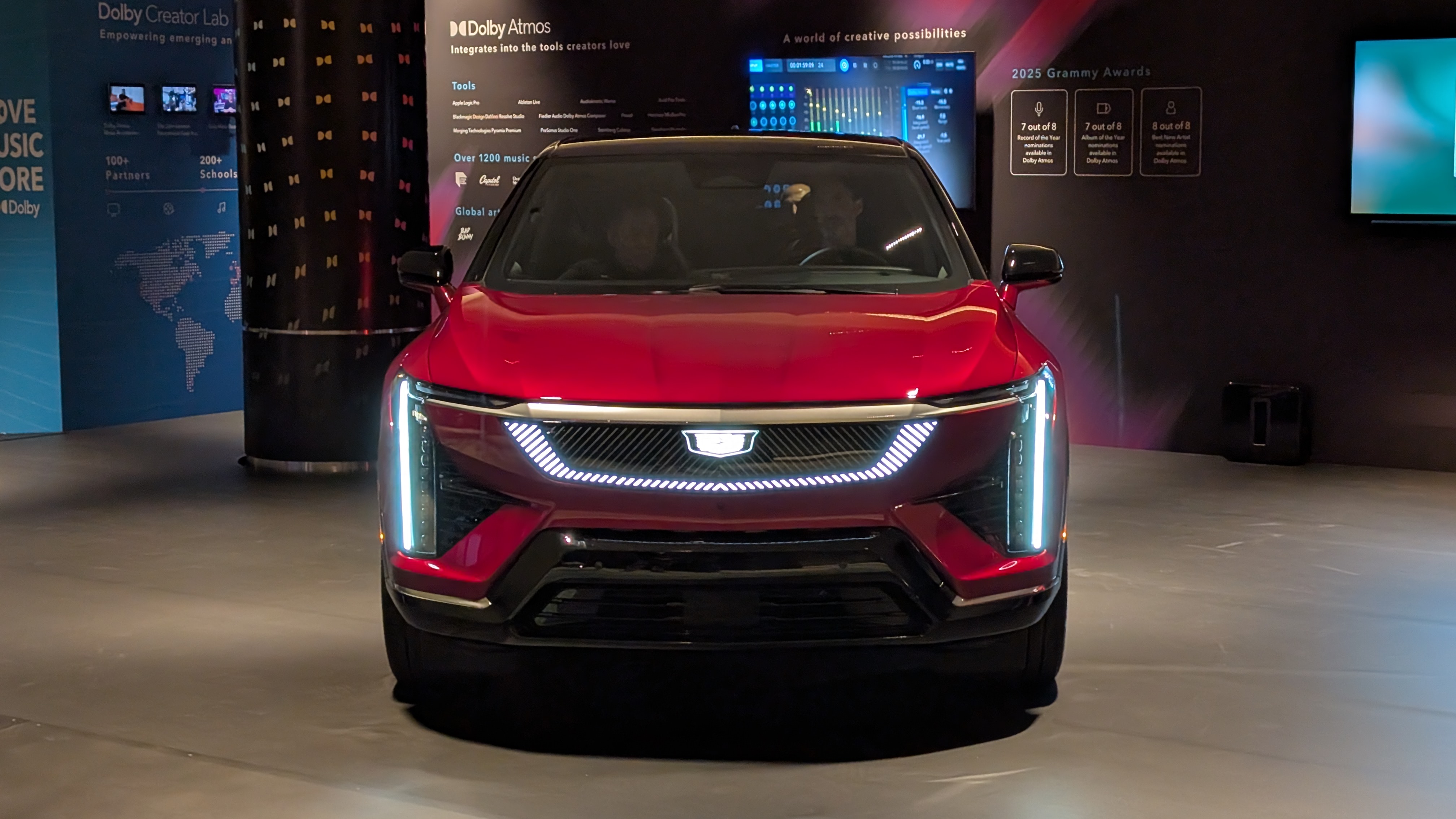
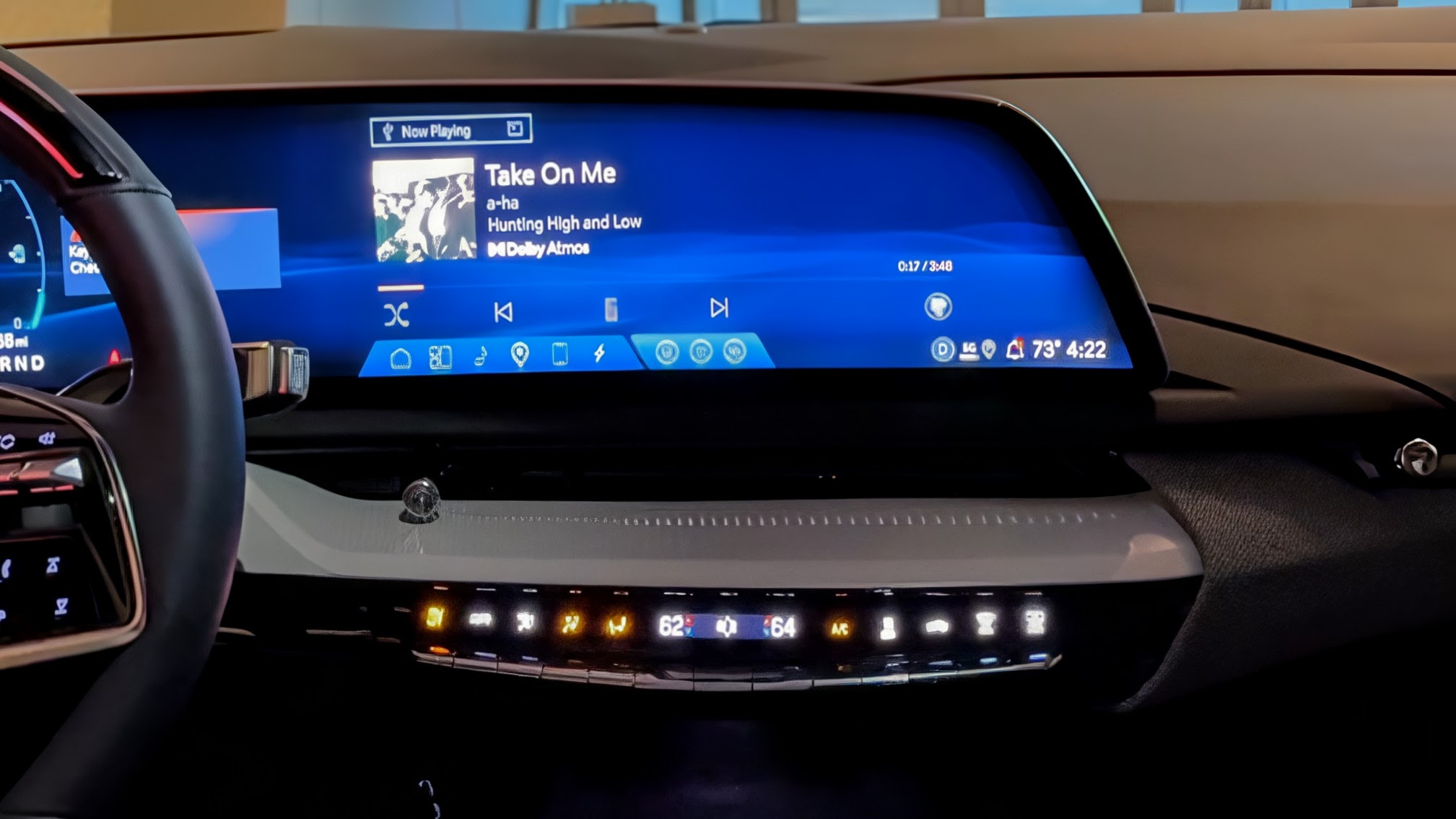
This year at CES 2025, Dolby Labs teamed up with Cadillac to demo Dolby Atmos in the new Cadillac OPTIQ. Obviously, Dolby Atmos needs no introduction, but you might not be familiar with the Cadillac OPTIQ. It’s the company’s smallest and most affordable EV SUV, and it comes with a 19-speaker AKG sound system with Dolby Atmos. That’s all good, but the Cadillac OPTIQ isn’t the only vehicle with Dolby Atmos. So what’s the big deal?
First, Dolby Atmos is standard on the $53,000 Cadillac OPTIQ. It’s not an option that only comes bundled in some expensive package. Second, it sounds absolutely fantastic. And I write this as someone who has listened to Dolby Atmos on Rivian, Lucid, Mercedes, Volvo, and Polestar EVs – and who worked at Dolby Labs as an engineer 15 years ago alongside folks on the Dolby Atmos team. In other words, I know a thing or two about this tech.
My Dolby Atmos listening experience in the Cadillac OPTIQ was the closest thing to being in a proper Dolby Atmos-enabled recording studio. I listened to everything from A-ha’s Take On Me to Chappell Roan’s HOT TO GO! and frankly I was blown away. Vocals sounded particularly clear, and the bass wasn’t overbearing like it often is by default in so many modern vehicles. My colleague Al Griffin agrees, so don’t miss his more in-depth article.
5) Vay remotely operated EVs
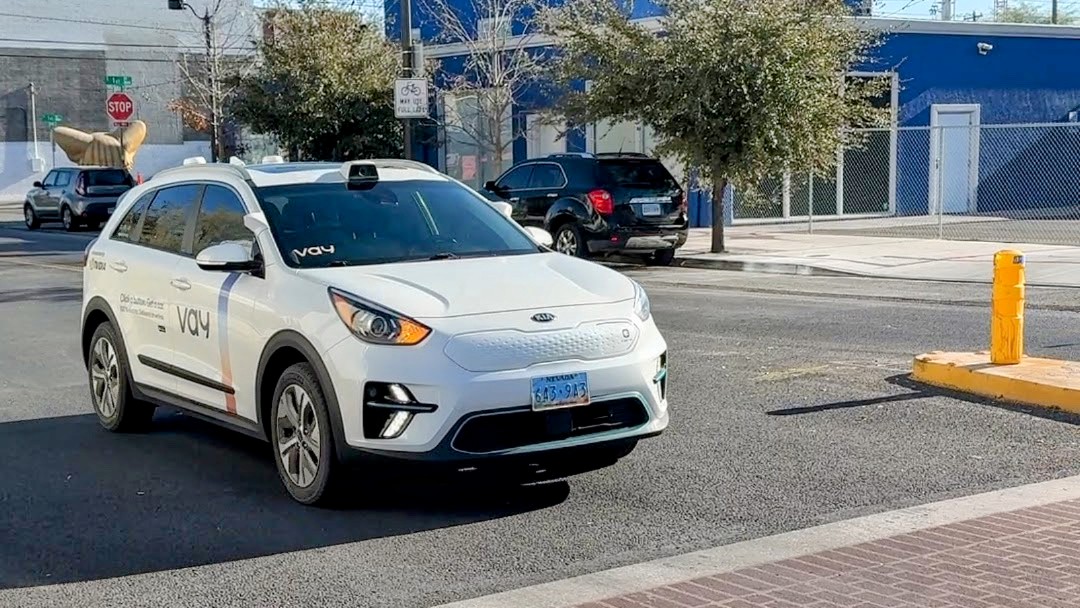
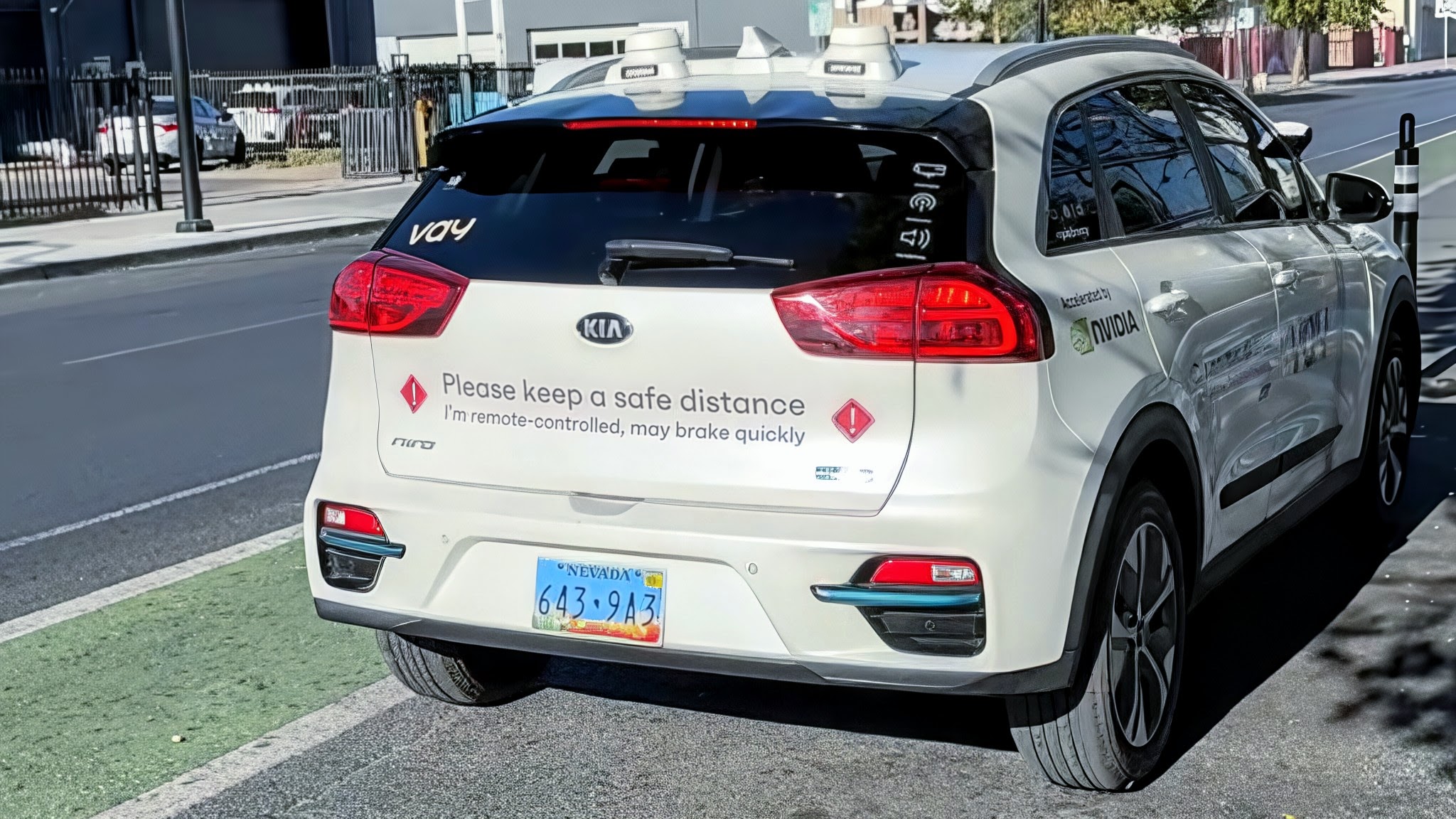
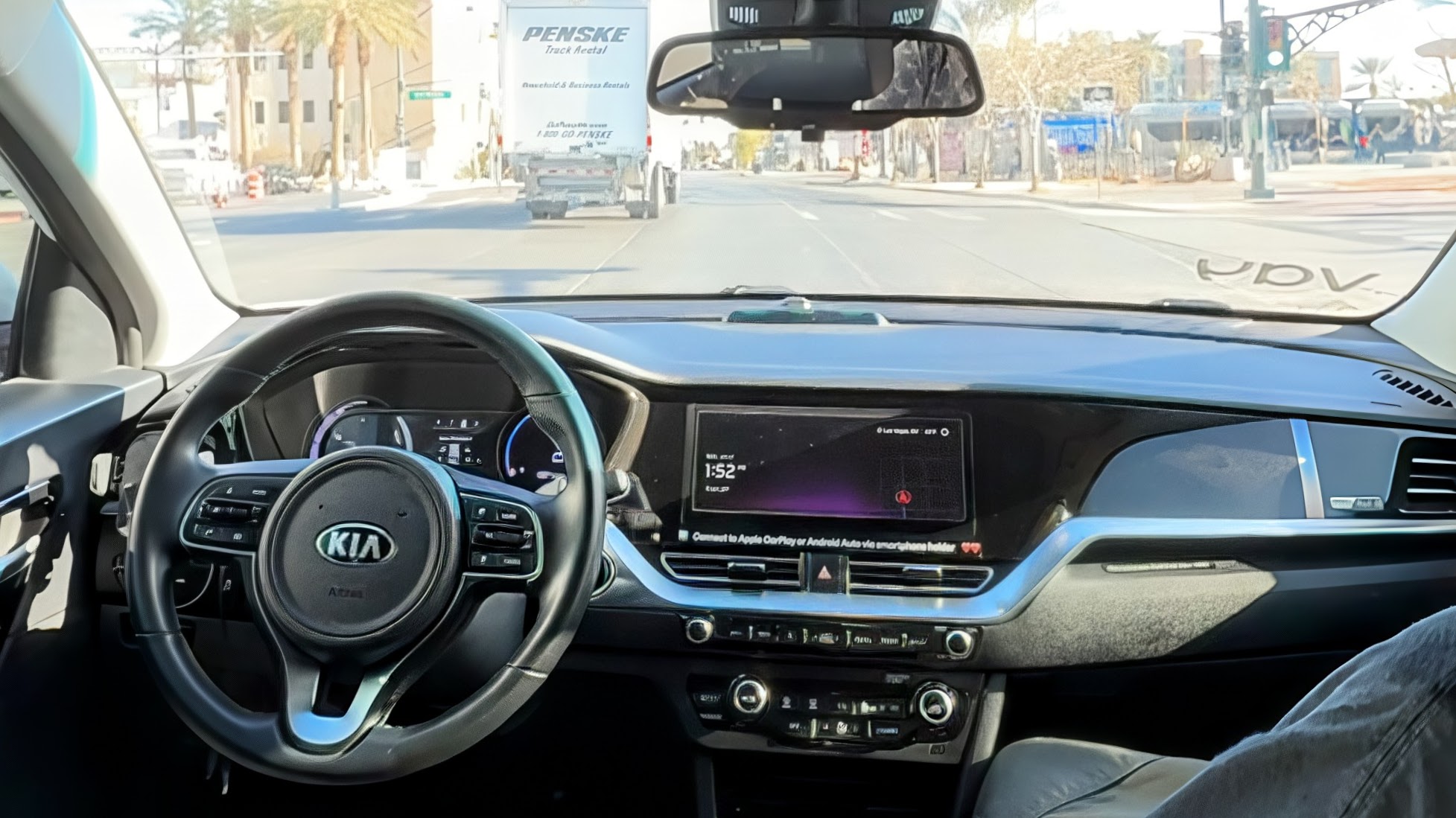
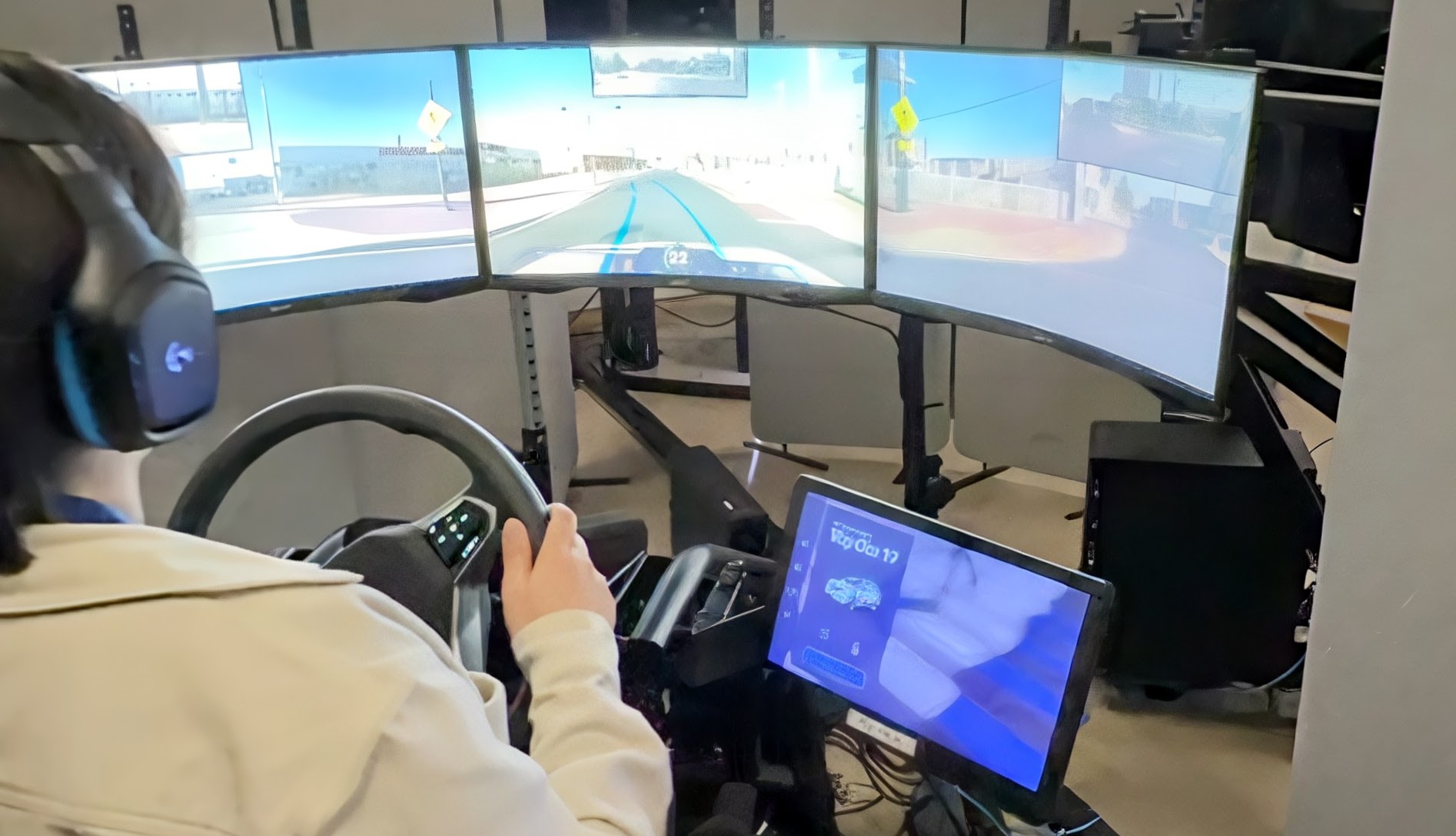
By now, you’ve probably read about ride-hailing services like Waymo, Cruise (now defunct), and Zoox (still testing). All of these use electric AVs (autonomous vehicles) which rely on expensive sensors like LIDAR and power-hungry on-board computers. What if instead of using AVs, your ride-hailing service used remotely operated EVs instead? What if the car was delivered to you, and you did the driving, thus reducing the liability risk?
That’s exactly what Vay is currently offering in a geofenced area of downtown Las Vegas using a fleet of Kia Niro EVs. At CES 2025, I got the opportunity to ride along on a remotely operated drive and see first-hand how remote operators drive the vehicles. Vay has recently grown from 2 to 20 EVs and plans to have 100 cars on the road serving a larger area of Las Vegas by the end of 2025. Best of all, Vay guarantees pricing that’s half the cost of an Uber.
What’s cool about Vay’s tech is that it only requires the Kia Niro EVs to be retrofitted with four cameras, a CAN bus interface, a simple computer, and four LTE modems on three different carriers. This setup guarantees sub-100ms latency and provides the remote operator with a high-resolution view of the road ahead and of each rear-view mirror. Meanwhile, the remote operator uses a race simulator-like setup inside Vay’s teledriving center.
This is basically how military drones like the MQ-9 Reaper are flown. Don’t miss my colleague Jake Krol’s story where he dives into Vay in more detail.
And there you have it. This is the EV tech that caught my eye at CES 2025. Keep in mind that this is by no means a complete picture of all the car and EV tech I saw at the show. Sony displayed its close-to-production “PlayStation on wheels” Afeela EV, Honda showcased its futuristic 0 Series concepts for the second year in a row, and Scout Motors brought its impressive off-road focused EVs (the Terra and Traveller) to the Central Plaza.
You might also like
- Exciting new EVs are coming in 2025: here’s what you need to know
- Forget the Cybertruck! The Silverado EV is the ultimate electric road-trip machine
- Volkswagen and Mercedes announce EV gaming upgrades to help you survive lengthy charging breaks
- I've driven the most expensive Volvo ever – and its clever Lidar tech could take EV safety to the next level
- Ariel’s Mad Max-inspired E-Nomad buggy hints at off-road hooliganism, without the noise
- Here's the real reason Android Automotive is still kind of a mess in EVs







